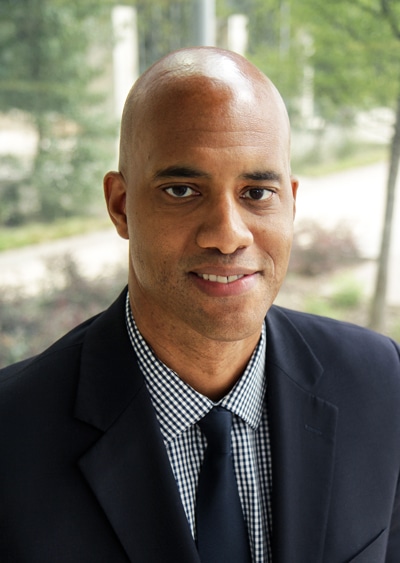To Corey Jackson, human resources reminds him of his days as a college basketball player.
But instead of taking the court with his teammates, Jackson is now crafting policies and a company culture at Parkland Health & Hospital System that ensure employees excel and deliver the premier care that the organization’s patients have come to expect.
“In college basketball, you’re bringing in top players from all over the country to hopefully create a great team,” Jackson, Parkland’s executive vice president and chief talent officer, says. “You also have that with any business environment you’re in. You’re bringing executives in from all over to create a really good C-suite and making sure everything works well together.”

Time as an athlete isn’t the only experience Jackson is leveraging in his HR role. He also spent time working as a legislative assistant in the US House of Representatives and as the NCAA’s director of diversity and inclusion.
“Working on Capitol Hill has been helpful because you deal with competing interests on a regular basis and you have to compromise and come to solutions on issues that will affect a broad range of people,” Jackson says. “Working in higher education is helpful too, because even though you have presidents and people in administration, they can’t do anything without faculty and student support. You want to make sure everyone has a voice at the table.”
Jackson is now drawing on that experience to create a culture at Parkland where employees feel heard, valued, and appreciated. He and his team have been focusing on shifting the HR department from solely an operations-focused function to one that has a comprehensive people management strategy. Jackson believes that a more effective people management strategy will ultimately trickle down to Parkland’s patients in the form of more engaged staff and consistent, quality care.
“A lot of people don’t think those two things are related, but if we focus on recruiting, retaining, developing, and engaging the right staff, we’ll have better people making better decisions,” Jackson says. “Then, the result should be better patient outcomes.”
To achieve that goal, Parkland is cultivating a celebratory environment throughout the organization. For example, Jackson helped champion an annual, system-wide event called Celebrate Us, which recognizes all disciplines and staff over the course of ten days with different activities and interactions. Additionally, he’s been an early advocate for the system’s executive rounding efforts, where senior leaders routinely visit different locations and clinics throughout the health system to personally thank employees for their hard work and dedication to patients.
“It could be that a lunch is served. Sometimes it will be breakfast, and sometimes it will be a snack,” Jackson says. “The main thing is having the executive staff go out and tell people how much they appreciate everyone’s work.”
Jackson and senior leadership also make sure to solicit feedback directly from employees in the form of a company-wide engagement survey. Staff members respond to a variety questions: Do I feel like I have a voice in my department? Do I feel like I have input in decision-making? And do I feel like I’m adequately compensated for the work I do? Then, Jackson and his team take the results of the survey and identify areas where employees feel improvements could be made. After that, they create and implement action plans to address any concerns that employees have at the time a survey is taken.
For example, if a survey for a department finds that employees feel communication is lacking, Jackson and leaders within the department will look for the root cause of the feedback.
“We would look at what we can put in place in that department to improve communication,” Jackson says. “We might ask questions like, ‘Are we having regular one-on-ones with our staff members? Are we putting out a newsletter for the department to talk about some of the things that are happening? Are we having joint staff meetings between different shifts?’ That’s just one example, but everyone is developing a plan around issues in their own department.”
Since these initiatives have been implemented, company leadership has noticed a significant increase in employee engagement and morale, Jackson says. But that doesn’t mean he’s content to rest on his laurels. There are several projects Jackson is working on to continue to improve the employee experience at Parkland.
He would like to start incorporating predictive analytics into his department’s workflow to more quickly identify potential problem areas or other patterns that would be useful to understand. One area where he believes predictive analytics will make a significant impact is on employee turnover.
“If we can get data ahead of time about areas that have high turnover, then we can backfill positions a lot quicker without always having to wait until someone resigns or retires,” Jackson says. “So, having this will let us start recruiting earlier, and because of that, we’re not impacting patient care by being short-staffed.”
And that gets to heart of what Jackson and Parkland are setting out to do: dedicate themselves to the health and well-being of the individuals and communities entrusted to their care.
“As executive director of GroupOne Background Screening, I have been working with Corey Jackson for several years. His work as an executive vice president and chief talent officer at Parkland Health & Hospital System has been exemplary. His efforts toward diversity and talent acquisition are some of the best I have ever encountered on the job.” – Danny Davila, LPI, RACR, Executive Director, GroupOne Background Screening.


